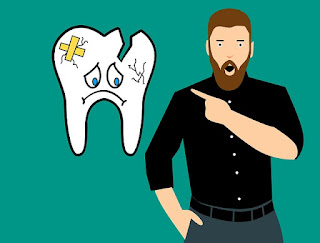Sugar Not Bad For Teeth
Is Sugar Bad for Teeth?
Cavities can become expensive to treat and have harmful effects to a person's wellbeing. Baked goods have more harmful effects to your teeth than candy and sugar. Sweet substitutes erythritol and xylitol help your mouth to prevent cavities.
Sugar Increases the Risk for Cavities
Diet and nutrition affect the tissues and overall health of your mouth, with sugar increasing the risk for cavities (ADA). Sugar causes mineral deficiencies in your teeth and the central cause for cavities, the most common form of disease that is not passed on from person to person, and is a very expensive dental treatment associated with poor nutrition in low- and middle-income countries (World Health Organisation).
Harmful Bacteria in Your Mouth
Bad bacteria, Streptococcus mutans and Streptococcus sorbrinus, jumps at the sugar you consume and forms plaque, becoming very acidic and starts to form cavities if not brushed away (TAN). Brushing twice a day with fluoride toothpaste, especially after exposing your teeth to sugar, will significantly reduce your risk for dental cavities (The Sugar Association). The reduction of sugar in your diet will be beneficial in the reduction of dental cavities and also your overall health since sugar is associated with obesity, diabetes, and cardiovascular diseases (Feldens et al.).
Sugar is not really bad for the teeth, it is the acid that forms after bacteria in your mouth feeds off the sugar you ate - crackers and bread cause more cavities than candy (DDS, Mark Burhenne). Erythritol and xylitol are used as sugar substitutes, however they do not have the same adverse effects as sugar since bacteria does not feed off of them, and actually does the opposite and suppresses the forming of bacteria and thus does not cause cavities (Gunnars).
Dental Treatments for Cavities
5 treatments exist for cavities depending on the severity of the disease, fluoride treatments, fillings, crowns, root canals, and tooth extractions (Mayo Clinic).
The first sign of mineral loss in the teeth is a white spot which can be reversed and slowed down by avoiding sugars and remineralization of the teeth with calcium, phosphate, and fluoride (Rathee, Manu, and Amit Sapra).
Conclusion
Sugar is not bad for teeth. It is the bacteria that feeds off the sugar you eat that causes cavities. Sugar substitutes erythritol and xylitol do the exact opposite. They actually suppress the harmful bacteria in your mouth and do not cause cavities. A simple change in diet will help keep people away from harmful cavities, expensive dental treatments, and improve your overall health.
Works Cited






Comments
Post a Comment